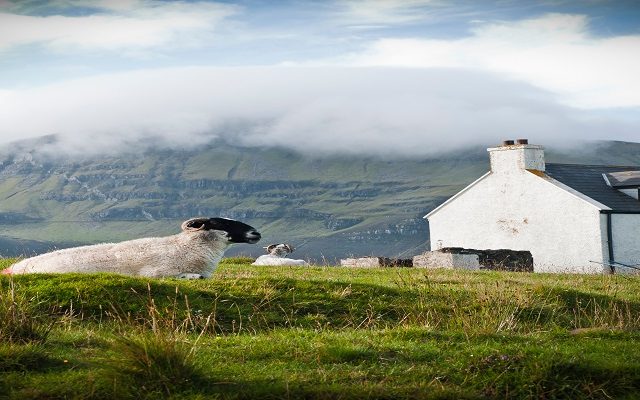Land Business Update | Week Commencing 16th May
Welcome to our update on key land management, farming, planning and energy issues.
FARMING AND FOOD
Basic Payments in England to be paid in two tranches
To help the cashflow of farm businesses in England, Basic Payments will now be paid 50% in August (possibly into September) and 50% from December onwards. This change will last until Basic Payments are phased out in 2027.
Scotland’s Food Processing Marketing and Cooperation Grant Scheme
This competitive scheme is now open to applications until 19th June. It provides grants to new and existing businesses for both capital projects, such as developing or creating food processing facilities (up to 40%), and ‘non-capital’ projects, such as marketing, running co-operatives and changes to your supply chain (of 40 – 70%). Please contact Mary Munro if you would like to discuss the grant scheme.
ENVIRONMENT
Scottish funding for carbon audits and suckler beef performance data
This scheme, which is called Track 1 of the National Test Programme (NTP): Preparing for Sustainable Farming, is now open for applications. Suckler beef producers can also access YourHerdStats, a new online tool which presents herd management information and highlights opportunities for improvement. This programme, which the Scottish Government is funding with around £17m per year, aims to support farmers and crofters to ‘produce more of our food more sustainably’. It is one element of a suite of actions, which will all contribute to the goals of the Scottish Agriculture Bill, which is expected in 2023 and will replace the Common Agricultural Policy. Further details of Track 2 of the Programme will be issued in the coming months.
S&P comment: it is interesting to compare the approach of the Scottish Government with that in England. In Scotland, the approach has been to get farmers used to carbon auditing and provide them with information on the financial and environmental performance of their businesses. This feels sensible to us as it builds knowledge and understanding in the land management sector. Nothing similar has happened in England and there is little or no suggestion of grants being linked to carbon auditing or to targeted outcomes for biodiversity gain.
Scotland’s Interim Principles for Responsible Investment in Natural Capital
In another example of the Scottish Government having a planned and transparent approach to environmental policy making, it has published some principles which aim to help develop ‘a values-led, high-integrity market for responsible investment in natural capital’ which ‘provides community benefits and supports a just transition’. The principles should be considered as a guide to how natural capital markets could / should develop, and they will be further discussed with stakeholders. We recommend that all land managers read them – not just Scottish ones. Some key principles are:
- Carbon management should be integrated with delivery of wider environmental, social and economic outcomes, such as biodiversity improvements, resilience to food supply and natural flood management. i.e., it’s not all about carbon.
- Investment in and use of Scotland’s natural capital should create benefits that are shared between public, private and community interests, contributing to a just transition.
- Investors and land managers should engage with local communities in decisions about land and land use change, in line with the Scottish Government’s Guidance on Engaging Communities in Decisions Relating to Land.
- Investment in offsetting should not be a replacement for emissions reductions, and should always be made in addition to having plans and demonstrable actions in place to reduce emissions.
- Land owners considering the sale of carbon credits should consider their own current and future carbon management needs before doing so.
Peatland Code revised to help deliver restoration projects more quickly
The Code is the UK quality assurance framework for peatland restoration projects; it enables them to generate independently verified carbon units. Peatland restoration is encouraged as degraded peatlands emit their stored carbon as they dry out and erode. The key changes within the revised Code (v1.2) are as follows:
- Restoration work can now start before project validation has happened, if suitable evidence has been given to the validator.
- Sites with existing land management agreements (e.g., Agri-Environment Climate Scheme or Higher Level Stewardship) are eligible for the Code where funding from the different sources is not for the same operation.
- The way in which peat depth is calculated has been amended.
- There are also some more administrative changes, including on validation, site monitoring and stakeholder engagement.
The revised version can be used immediately or, if preferred, the old version can be used until 1st August 2022. Please contact Andy Adamson if you would like to discuss the Code or peatland; he has written a blog on the revisions which is available here. Also see the article on the Nature for Climate Peatland Grant below.
Woodland Code rules revised too
The Code’s tests on ‘additionally’ have been revised. The tests are designed to ensure that only woodland creation projects that need to generate woodland carbon units to be financially viable are allowed to generate the units. The revisions aim to simplify the tests and to standardise them more. More technically, the revisions have replaced the purchase price of land with data on income foregone as a measure of the value of land, so that high land values do not skew the calculations. The changes come into force on 1st October. Please contact Simon Hart if you would like to discuss the Code or woodland planting.
Nature for Climate Peatland Grant – round two of the peatland restoration grant open until 3rd June 2022
This grant supports landscape-scale applications that work to restore the hydrology of peatlands (lowland and upland) in England. Two types of grant are available:
- Discovery Grant – pays 100% of the costs of gathering the information needed to design a restoration project. Applications can be made until 3rd June.
- Restoration Grant – pays 75% of the cost of restoration work on degraded peatlands (85% in exceptional circumstances).
Please contact Joel Paterson if you would like to discuss peatland restoration or how we can help with a grant application or peatland carbon calculations and budgeting.
RURAL ECONOMY
Major legislative programme set out in The Queen’s Speech
The State Opening of Parliament on 11th May marked the formal start of the parliamentary year and the government set out its work programme for the year in the Queen’s Speech, which includes 38 bills. The main ones that could affect rural businesses and places are:
- Renters Reform Bill. This Bill will probably affect the greatest number of rural property owners (and their tenants). It ends ‘no fault’ evictions by abolishing section 21 notices and strengthens landlords’ rights of possession through different means. These changes were a 2019 manifesto pledge. It also contains provisions on raising the standard of privately let homes by making the Decent Homes Standard apply to the private sector for the first time.
- Levelling Up and Regeneration Bill. This includes proposals to permit ‘street votes’ on small scale changes to houses without the need for full planning permission. It also proposes generating more revenue from large developers through a levy which would replace (some) section 106 agreements to fund schools and roads, although this would be in return for local people agreeing to more housebuilding in their area. This Bill replaces the previously proposed Planning Bill, which was scrapped after concerns by some Conservative MPs that it would lead to more house building in their constituencies. We think that the government’s target remains to build 300,000 houses a year. Another element is allowing councils to force landlords to rent out empty shops to revitalise high streets.
- Non-Domestic Rating Bill. This will allow business rates to be reassessed more often; however, reform of business rates has been a policy ambition for a long time and has not happened in any significant way in recent years.
- Transport Bill. This is a wide ranging Bill which includes allowing self-driving cars and increasing the number of electric vehicle charging points.
- Brexit Freedoms Bill. This will enable ministers to change laws inherited from the EU without a vote in parliament, which has attracted lots of criticism about oversight.
- Genetic Technology (Precision Breeding) Bill. This will legalise (some) gene-editing technology by creating a lighter-touch authorising regime for deciding whether modified plants and animals can be used in agriculture.
- Animal Welfare (Kept Animals) Bill. This includes banning the export of livestock for fattening and slaughter, and strengthening the powers for police to deal with livestock worrying.
- Trade (Australia and New Zealand) Bill. This Bill provides the legal underpinning to the two trade deals.






